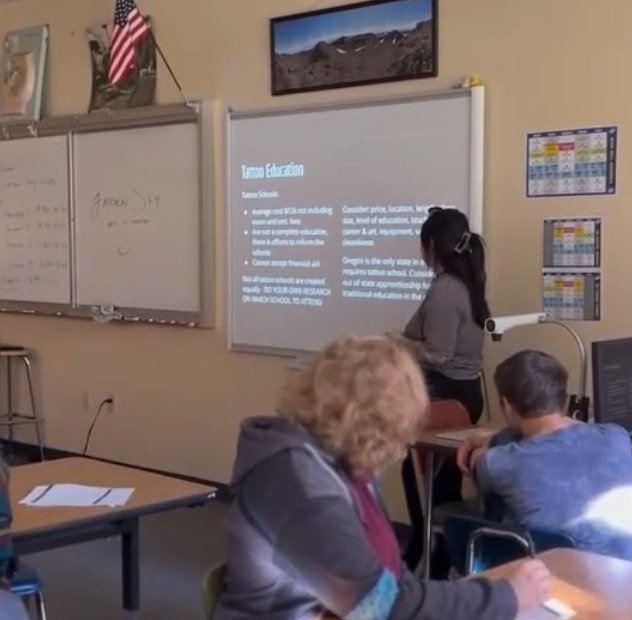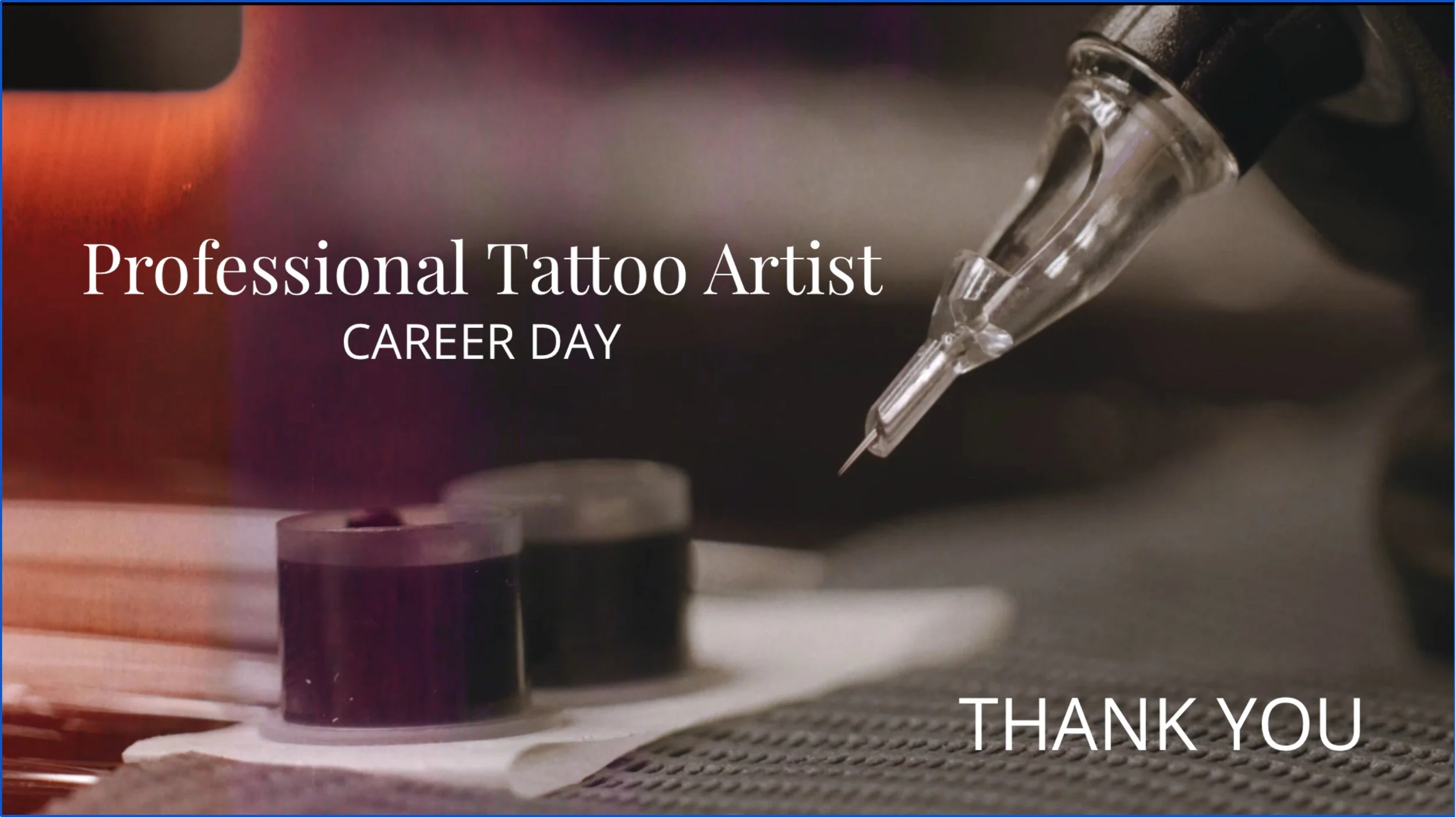Career Day Guest Speaker
Earlier this month, I had the opportunity to speak at the Grants Pass High School Career Fair. This was my second year being invited, and what I enjoy most about it is getting to give students a real, unfiltered look at what it means to build a career in tattooing.
When I first started in 2018, tattooing was still fighting for legitimacy in some circles. Today, it’s the opposite — it’s become incredibly popular. Everyone seems to want to be a tattoo artist, but not everyone understands what it truly takes. Tattooing isn’t just a creative outlet or a fast track to success. It’s a licensed trade, a small business, a lifelong craft, and a serious responsibility to your clients and community.
What Tattooing Really Is
Tattooing is art, but it’s also so much more than that. It’s a craft that takes years of discipline, consistency, and humility to do well. You’re not just learning to draw on skin, you’re learning to build trust, make safe choices, and create something permanent that carries meaning for another person.
Tattooing is a licensed trade, and with that comes responsibility. We work with people’s bodies. We deal with bloodborne pathogens and sterilization standards. We have to maintain CPR and First Aid certifications and operate under state health regulations. Our clients put their health and trust in our hands, that’s not something to take lightly.
Tattooing is also entrepreneurship. Most artists are self-employed, which means we manage everything from finances and scheduling to marketing, branding, and continuing education. It takes professionalism, discipline, and business awareness to make this career sustainable long-term.
And of course, tattooing is art, but it’s not about being the “best” artist in the room. It’s about constantly developing your skills, studying design, anatomy, light, and form, and finding a style that’s both intentional and evolving. True growth in this field comes from continuous learning and staying curious.
Finally, tattooing is a culture. It’s one of the oldest art forms in the world, and every artist becomes part of that lineage. We have the privilege of carrying forward a tradition built by generations before us, and the responsibility to leave it better than we found it.
That’s what I try to impress on students: being a tattoo artist isn’t about chasing trends or quick success. It’s about respect for the craft, for your clients, and for the culture you’re stepping into.
Education and Integrity
One of the biggest lessons I try to share is that talent alone won’t carry you. Tattooing requires a strong foundation in art, but it also demands communication skills, emotional awareness, and business sense.
I’ve always believed that the best artists are lifelong students. The industry changes constantly; new technology, new styles, new standards, and continuing education is what keeps you relevant and responsible.
When I talk to students, I emphasize that tattooing deserves the same respect as any other skilled profession. The goal isn’t just to make beautiful tattoos, but to build a sustainable, ethical, and respected career.
Why I Care About This
Tattooing changed my life. It gave me a way to combine creativity with independence and purpose. But it also showed me how much the industry still needs to grow; in how we educate, how we mentor, and how we hold each other accountable.
That’s why speaking at events like this matters to me. I want to help the next generation of artists understand what’s possible, but also what’s required. If one student walked away from that day knowing that tattooing can be a real, respected career path. One that takes both passion and professionalism, then it was worth every minute.
My mission moving forward is simple: to keep building opportunities, conversations, and educational resources that help artists grow and raise the standard of our craft. Because the more we invest in education and integrity, the stronger the industry becomes for everyone.







